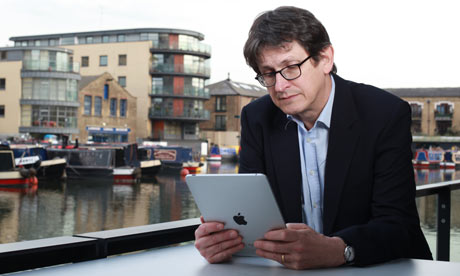People
Former Guardian editor-in-chief to chair Reuters Institute
Tuesday 26 April 2016
 Alan Rusbridger (photo), former editor-in-chief of The Guardian, is to be the next chairman of the Reuters Institute for the Study of Journalism at the University of Oxford.
Alan Rusbridger (photo), former editor-in-chief of The Guardian, is to be the next chairman of the Reuters Institute for the Study of Journalism at the University of Oxford.
He succeeds Tim Gardam, principal of St Anne’s College, who chaired the Institute during its first decade, building on the strength of the Reuters Journalist Fellowship programme to transform the organisation into the world’s leading research centre on the media industry. Gardam will formally step down in September to become chief executive of the Nuffield Foundation.
Rusbridger, 62, left The Guardian in 2015 to become principal of Lady Margaret Hall at Oxford University.
Under his two-decade long leadership of The Guardian, it underwent a digital transformation to become one of the world’s most read English-language newspapers. It won the Pulitzer Prize for its coverage of the Edward Snowden revelations, which dominated the news agenda globally in 2013.
In that year Rusbridger took the decision to destroy hard drives containing information leaked by Snowden rather than comply with a British government demand to hand over the data. An alternative action was agreed and in the presence of the authorities the drives were destroyed, Rusbridger described performing the task as "slightly pointless". "Given that there were other copies, I saw no reason not to destroy this material ourselves."
Monique Villa, CEO of the Thomson Reuters Foundation, the RISJ ‘s core funder, said: “Under the guidance of Tim Gardam, the Reuters Institute has undoubtedly become one of the most successful public policy research centres at the University of Oxford, and one of the most authoritative voices in the study of journalism and its fast changing trends. We are all very proud of what Tim has accomplished, and I am sure that Alan’s expertise will allow the Institute to continue to build an even bigger profile, helping to shape many of the key questions dominating the media industry”.
"The Reuters Institute has, in a relatively short time, established a considerable global reputation for research into all aspects of journalism”, said Rusbridger. "In the face of a digital revolution that offers huge opportunities and challenges, it is essential that there is a space for calm reflection, research, discussion and collaboration.”
The Institute was founded in 2006 with the mission to create a research centre building on the strengths of the Reuters Journalist Fellowship programme. In the past 33 years, the Fellowship has brought to Oxford more than 573 journalists from 93 countries to conduct world-class research on the key trends shaping the global media industry. Since its inception, the RISJ has increased its funding fourfold, produced over 100 publications, and created the annual Reuters Institute Digital News Report. First launched in 2012, the publication is the ultimate analysis of news consumption online surveying more than 50,000 people across 26 countries. ■
- « Previous
- Next »
- 285 of 579